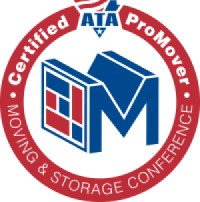Self-Storage vs. Mover Warehouse Storage: What’s the best option when moving homes
Self-Storage vs Mover Warehouse Storage
When moving homes, sometimes short-term or long-term storage is needed.
Maybe you need to move out of your old home before your new home is ready. Maybe you’re remodeling parts of your new home and can’t move everything in right away. Or maybe you’re downsizing and haven’t decided what to do with your extra personal belongings yet. When considering storage during a home move, it’s best to understand the differences between self-storage and warehouse storage.
SELF-STORAGE
WHEN IT WORKS
- Self Serve: One of the perks of using self-storage is that you can access your items whenever you want. If you think you’ll need to visit your belonging while they’re in storage, then self-storage might be a good option for you.
- Small Storage Needs: If the items you need to store will take up a relatively small amount of space, self-storage can be a good option. Most self-storage units start in the 5′ x 7′ range.
- Moving Out: When it comes time to move your stuff out of storage, are you able to do that yourself? Or do you need a moving company? If you can load it, transport it, and unload it yourself, then self-storage might be a good option.
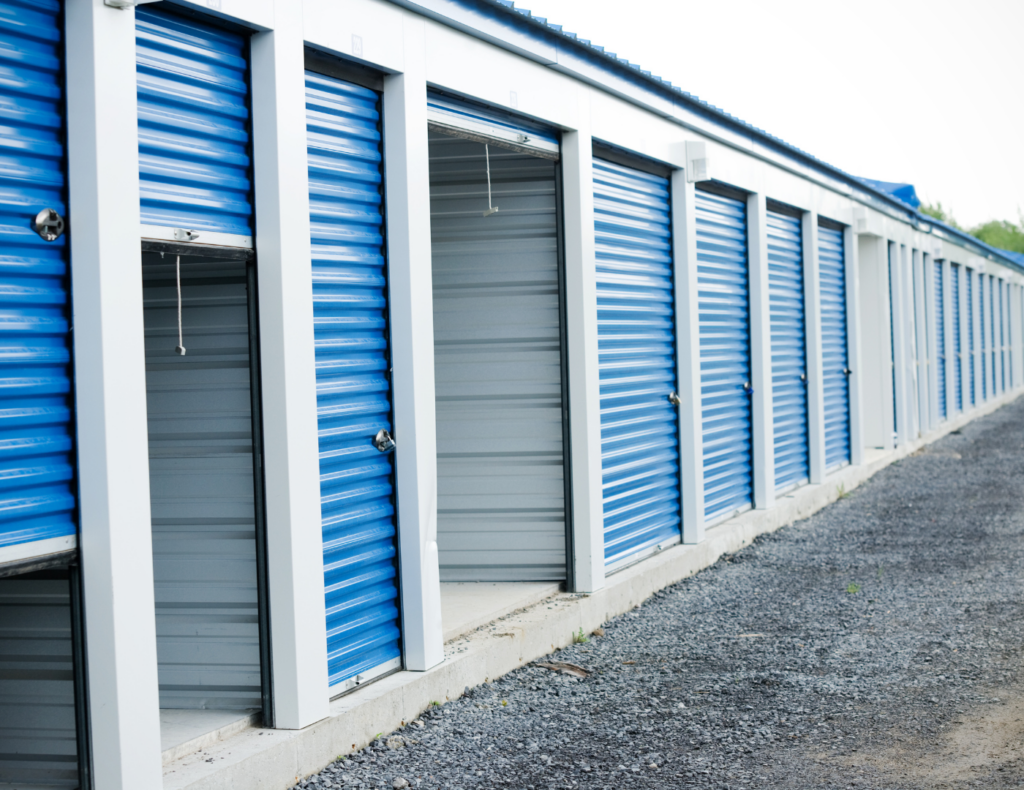
WHEN IT MIGHT NOT
- Space: Depending on the size and quantity of the items you need to store, self-storage options may not provide enough space. Larger units cap out in the 10′ x 30′ range, which is about the size of a long single-car garage.
- Cost: If you are having your moving company deliver items directly into a self-storage unit, you need to consider truck access. Most self-storage units don’t allow tractor trailer access, which means your moving company will need to unload your items from the main truck and reload onto a smaller “shuttle” vehicle. This will generate additional costs beyond your base move.
- Liability: If you have your moving company deliver your items to your self-storage unit, their liability ends when your items leave their truck. Any damage that occurs to your items while in storage, whether that’s from climate conditions or being moved around, will not be covered by your movers and will be your responsibility.
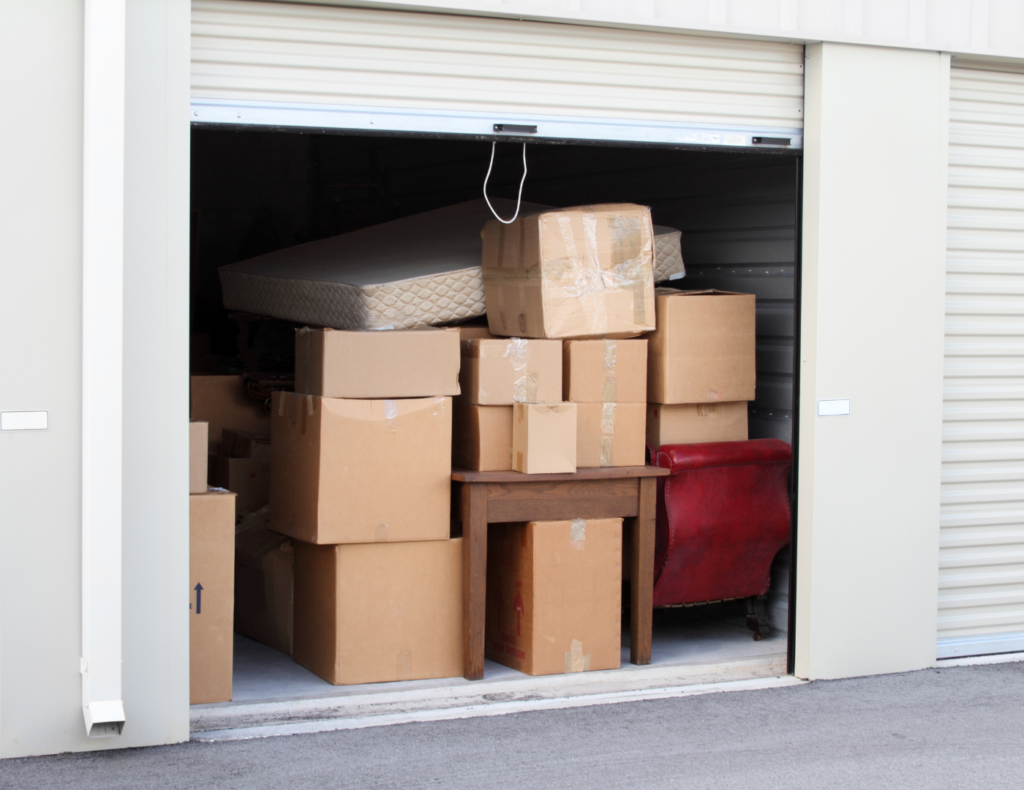
WAREHOUSE OR MOVING COMPANY STORAGE
WHEN IT WORKS
- Turn Key: If you want your items to go from your old home, to storage, to your new home all without you having to personally manage and move them, then your mover’s warehouse storage is for you. Utilizing your moving company’s warehouse storage ensures a one-stop-shop type of experience. Your items will be loaded on the truck at your old home, delivered into warehouse storage, reloaded on a truck, and delivered to your new home whenever you’re ready.
- Clean: Quality warehouses, like those of Ace Relocation, are continually cleaned, which means your belongings are protected from dust, dirt, and damaging pests. Ace Relocation warehouses store lots of sensitive items, including medical equipment, so the environments have to meet a higher standard of clean.
- Private: You may feel that storing your belongings in a warehouse means that they’ll be lumped together with everyone else’s stuff. But that is not necessarily the case. Ace Relocation sequesters your items in roped off areas (for very short-term storage such as a day or two) or puts your items in “Vaulted Storage”, which are large wooden vaults designed to keep your belongings isolated and protected from other items in the warehouse.
- Secure: Most professional warehouses are equipped with multiple levels of security. In addition to security systems controlling access to the building, most warehouses will also have secured gates controlling vehicle access, and not based on a code that can easily be given out to people’s friends.
- Space: Leveraging carrier warehouse storage is a great option if you have large amounts to be stored, or if you have oversized or abnormally shaped items. Your carrier can tailor a storage solution that will meet your specific space requirements.
- Time: It’s possible you may have a mix of short-term and long-term storage needs. You might need all your belongings stored for a short amount of time but need a portion of your belongings stored for weeks, months, or even years. With warehouse storage, you can pay for the space you need only for the time you need it, rather than renting a large self-storage unit that may end up half empty. With warehouse storage, you only pay for the space you use.
- Liability: If your belongings stay with your moving company all the way from loading, to warehouse, to unloading at your final destination, then the liability for any loss or damage also stays with them.
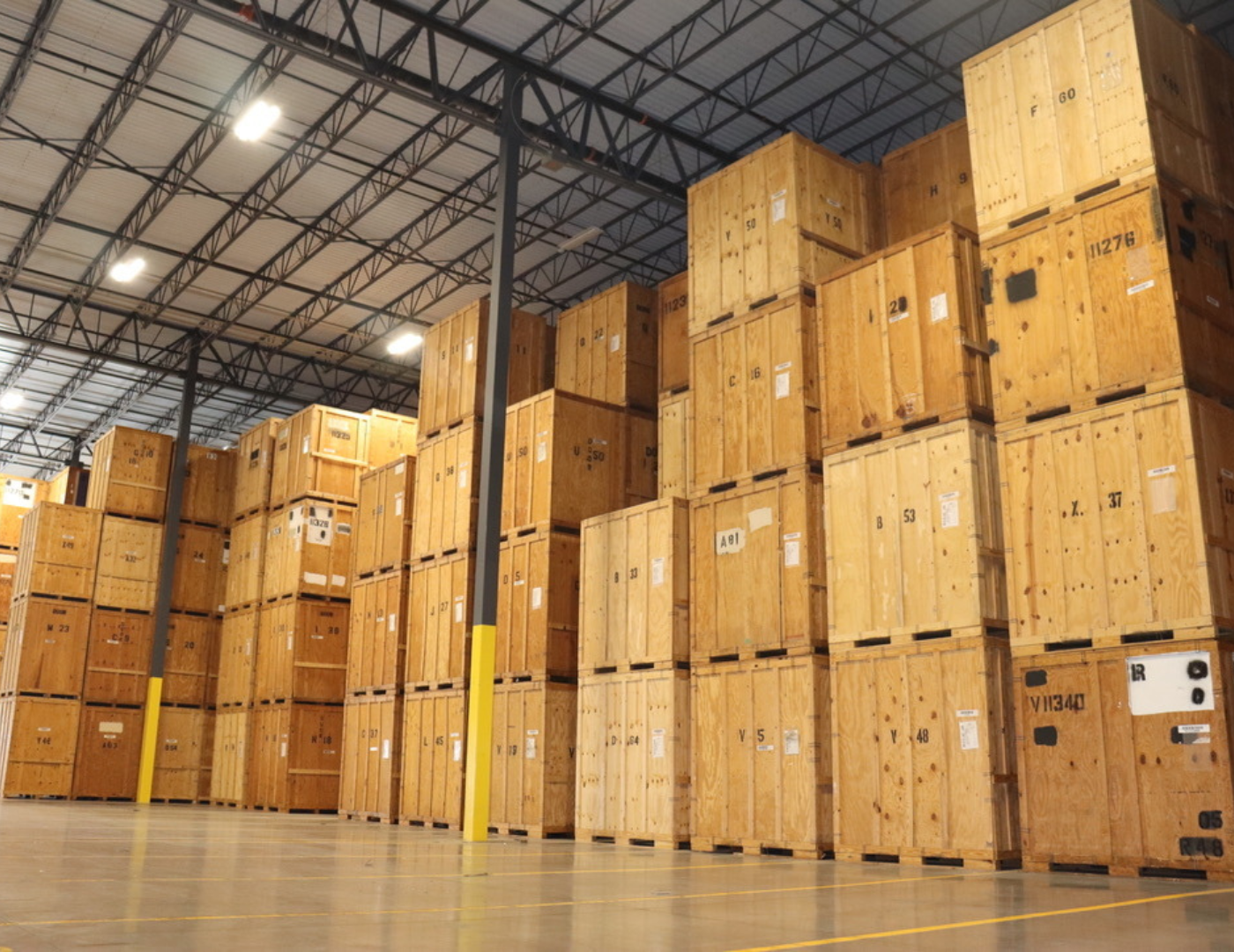
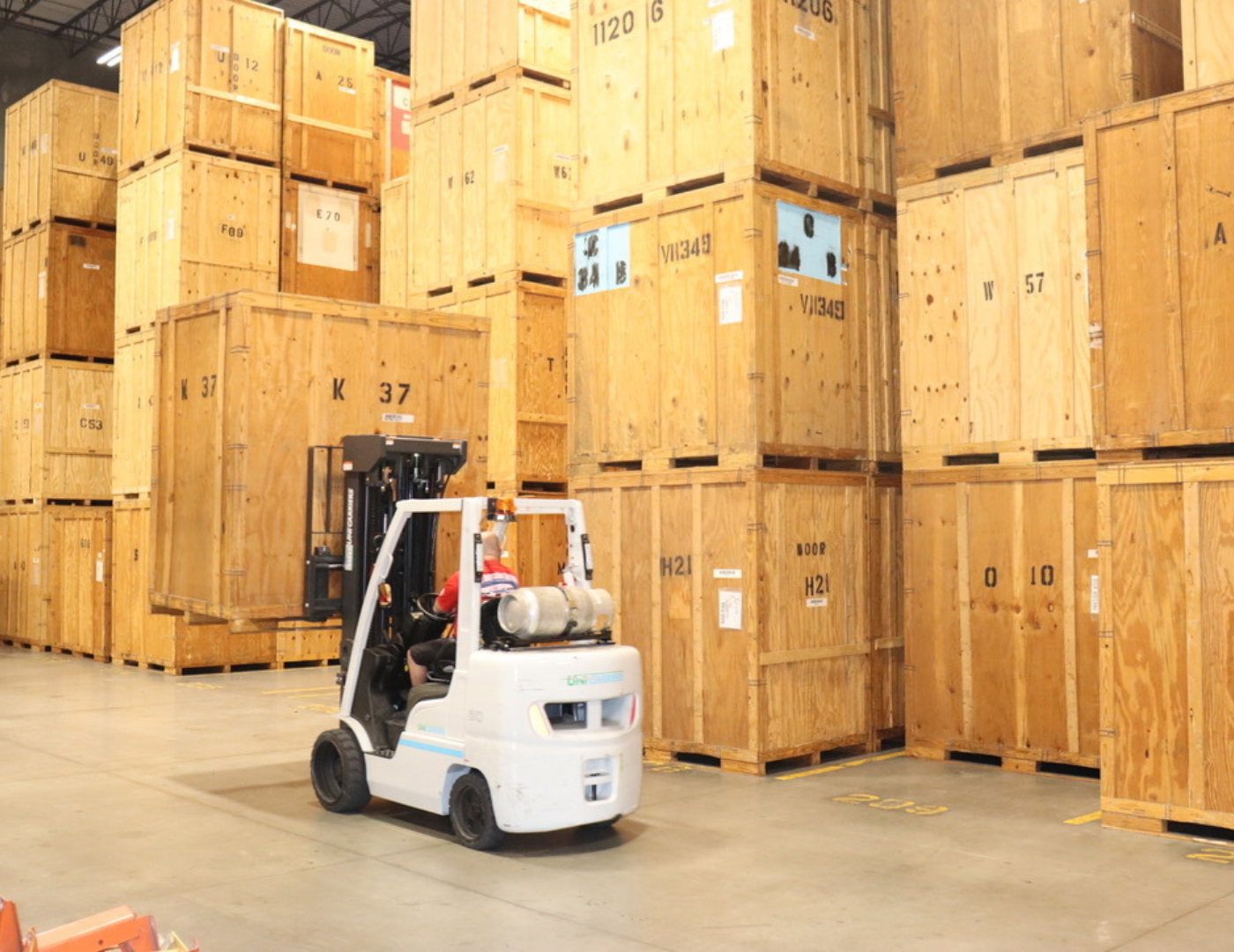
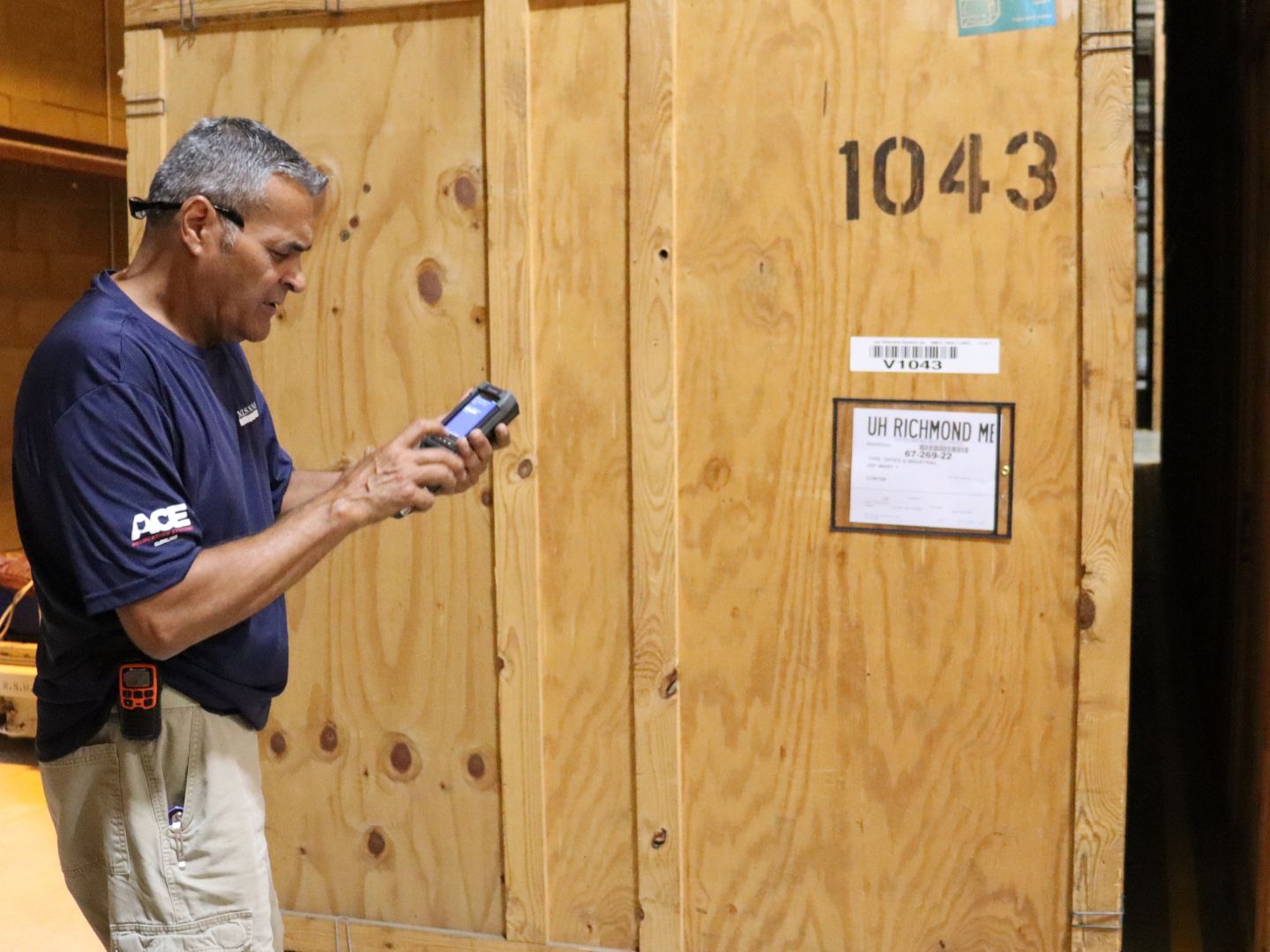
WHEN IT MIGHT NOT
- Access: Moving company warehouses are not open to the public. Plus, items are organized and positioned based on delivery date. If you need frequent access to your items while they are in storage, then carrier warehouse storage might not be the best option.
- Price: Because warehouse storage is a managed service, rather than a do-it-yourself solution, it can frequently cost more than self-storage. However, if you factor in the cost of transporting your items out of storage to their final destination, the liability of loss and damage, plus managing the logistics yourself, many people find the nominally higher storage fees to be money well spent.
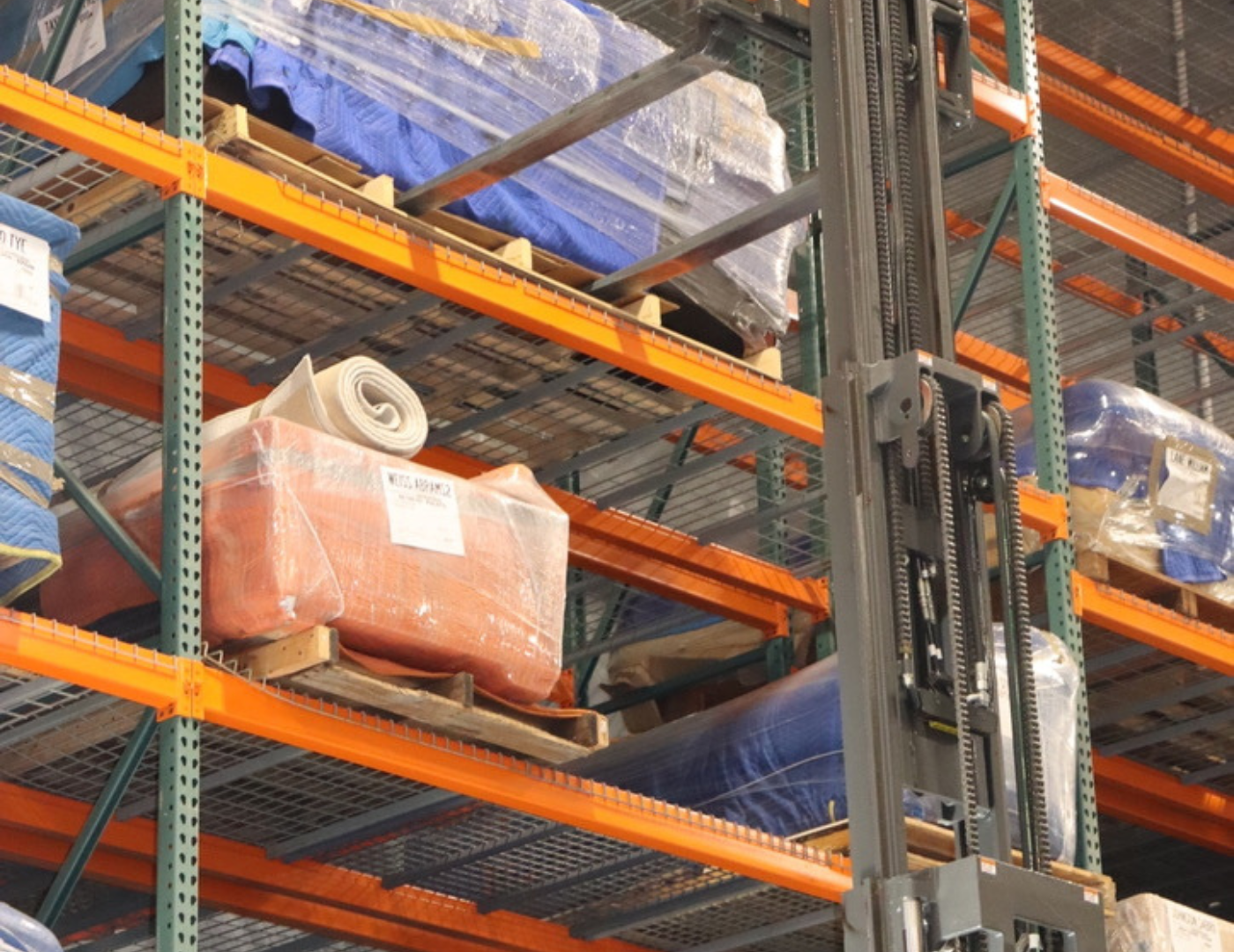
A Home Between Homes
Our warehouses feature video surveillance systems and a professionally trained staff to ensure your items are protected until you’re ready to have them back.




